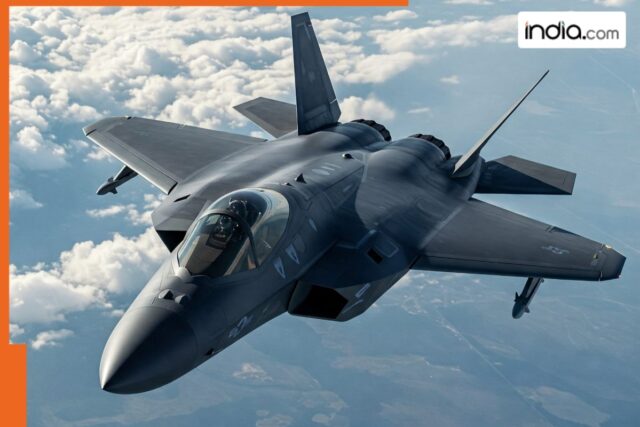The estimated cost of this project is likely to run into billions of dollars.
New Delhi: A report from Japanese online portal Sankei Dot Com claims that India may join the 6th generation fighter jet programme. A report by IDRW, citing the Japanese portal, stated that India has expressed deep interest in participating in the Global Combat Air Program (GCAP). GCAP is a project for the construction of a sixth generation fighter aircraft, which involves Japan, the United Kingdom, and Italy. In December 2022, an agreement was reached between the three countries regarding this project, aiming to develop a 6th generation fighter jet by 2035. It will be a state-of-the-art stealth fighter jet to be built collaboratively by the three countries.
The Japanese portal has confirmed this citing several Japanese officials and Indian diplomats. It stated that India is showing significant interest in the GCAP project and has officially reached out to the Japanese government with the intent of exploring its participation in the project. However, Japan is concerned that India and Russia have had very strong defense ties for decades, which could pose a risk of technology leakage. Therefore, Japan is currently remaining cautious.
Under the GCAP project, the three countries are collaboratively developing a sixth-generation fighter jet. Japan will replace its aging Mitsubishi F-2 fleet with new fighter jets under GCAP. Meanwhile, they aim to build a sixth-generation fighter jet considering the future needs of the UK’s Tempest and Italy. The three countries are referring to it as strategic cooperation, which will include advanced stealth, AI integration, and network warfare capabilities.
However, this project is expected to incur heavy costs. The estimated cost of this project is likely to be tens of billions of dollars, making it quite challenging for these three countries to move forward, and they are all in search of a reliable partner, which India fits, as India has strong ties with all three countries.
India’s inclusion could reduce financial burdens by expanding the market and leveraging its growing defense industry. However, the Japanese government is grappling with a dilemma. While India’s participation in this project could advance cooperation against a common adversary like China, Japan fears the theft of technology, which heightens its concerns. Japan is apprehensive because India operates the Russian fighter jet Su-30 MKI and the Russian air defense system S-400. A senior official from the Japanese defense ministry has warned, expressing concern that ‘this could lead to our technology being stolen.’ Japan fears that sensitive GCAP technology may inadvertently be transferred to Russia. Additionally, Japan’s concerns also include potential leaks of advanced stealth, avionics, and propulsion systems. Japan believes that the involvement of more countries increases the risk. This heightens the threat of delays in completing the GCAP by 2035.
Joining GCAP could provide India with cutting-edge technology, which would be a masterstroke in advancing the domestic defense industry while strengthening strategic partnerships with Japan, the UK, and Italy. A report from the Indian Defense Research Wing (idrw.org) stated that even before Japan’s formal inclusion in the program, the UK and Italy were excited about India’s involvement. Both countries want India to be part of this project, so the only obstacle is Japan. The UK had officially informed India about GCAP, and Italy had extended a similar invitation to India. However, Japan’s hesitation is a growing concern for India.

















































